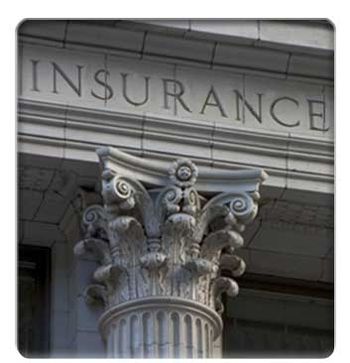
Whether it's the name, the lack of signage -- or simply that people prefer the grander Petra -- Jordan's Um er-Rasas UNESCO World Heritage site appears to be underappreciated by travelers.

Whether it's the name, the lack of signage -- or simply that people prefer the grander Petra -- Jordan's Um er-Rasas UNESCO World Heritage site appears to be underappreciated by travelers.

This week, the doctor mulls the many intersections of money, credit, debt, consumerism, the lending industry, stock prices, real-estate values, hedge funds, healthcare and horses. Buckle up.

This week, the Obama administration launched Healthcare.gov, a new health-insurance-comparison website, and unveiled a new insurance plan for Americans who can't find affordable coverage elsewhere due to their pre-existing conditions.

Nearly 140 S&P 500 companies raised their dividends or introduced new ones this year. Experts now believe some of these cash cows may declare a special dividend soon to sidestep a potential hike in the dividends tax next year. A look at some solid high-yielding stocks.

A recent blog post on "4 Reasons Why Doctors Don't Use LinkedIn," got me thinking about how to use the power of social media for medical practice promotion. By not participating in LinkedIn and other sites, physicians who want to grow their practices are missing an excellent marketing opportunity.

In Part II of a four-part series on house-hunting in New York City, the doctor looks at the good, the bad (and the ugly) of dealing with real-estate brokers, and the ins and outs of the bidding process.

Numerous studies have shown that a medical resident's clinical performance breaks down after 24 hours on the job, and those who pull all-night shifts are responsible for more than half of medical errors. Now, new guidelines propose shortening residents' work week.

Most Americans believe all doctors are wealthy. Combining this perception with a litigious society -- and a mentality of passing the blame -- and physicians are a prime target for lawsuits. These asset-protection strategies can shield a physician's hard-earned wealth.

Consumers will get new protections under the financial reform bill, but lawmakers stopped short of implementing a number of provisions that could have done more to protect consumers. Here's how the proposed financial reform bill will affect you.

Parents with preteen kids can earn a tax credit for up to $1,200 to cover child care costs. Overnight sleep-away camps don't qualify for the dependent-care credit, but other child care costs you incur over the summer may be eligible.

A common contributor to medical malpractice lawsuits is a patient's claim that the physician never accurately communicated information related to the diagnosis. To defend themselves, doctors need to carefully document, communicate, and then follow up on their diagnoses.

Alaska is not built to human dimensions: Visitors cannot enjoy it in one big bite -- they have to take it a nibble at a time. A good start would be a small ship cruise of South East Alaska, home of the Baranof Warm Springs.

Hey iPad owners, this fun video shows how you can combine the "two greatest inventions of mankind" -- the iPad and Velcro -- to find unique and quirky uses for the device at home, on the road and in the office.

End-of-life care is a subject many physicians would prefer to avoid. For the medical profession, is it that we feel held to such a high standard that the death of a patient represents failure? Or, more crassly, does a patient's passing imply a lost future source of revenue?

The stock market's inability to be inspired by the financial sector's strength makes it uncertain whether stocks will log their fifth straight loss, which would make for the stock market's longest losing streak of 2010.

When comparing 401(k) retirement plans for a small practice, physicians should look for these important qualities: low fees, a diverse selection of mutual funds, education tools, and plan monitoring.

Shares of medical device makers fell after Moody's Investors Service warned the industry may face pricing pressure as more doctors leave private practice to form alliances with hospitals and other large healthcare systems.

If you've ever pictured yourself driving off in a Lamborghini or Ferrari, but didn't think you could afford it, there's a way you can enjoy the thrill of driving one without shelling out a year's income: Rent an exotic car for the weekend.

What in the world does "macroeconomics" have to do with personal finance? Well, it turns out quite a bit. Many people believe we have no control over the big picture, just our response to it. But by understanding larger forces better, we can increase our control over the bits within our individual grasp.

Fear of chart audits can lead billing departments to undercode -- and that may be costing you revenue. Benchmarking and analytical tools can help identify undercoding in your practice, to ensure you don't leave money on the table.

All the closely watched economic indicators -- retail sales, consumer prices, unemployment rates, and home prices -- are giving off mixed signals. But these under-the-radar indicators are surprisingly accurate at calling the direction of the economy ... and the news is good.

In a four-part series, the doctor offers advice and guidance on a subject many people seem to have an itch to do these days: Buy property in New York City. Here she lays out some things buyers need to know.

To journey through the life and times of Lord Joseph Lister, a surgeon who pioneered the use of carbolic spray for antisepsis, is to venture through some of the most hallowed medical halls in Europe.

It's been a rough ride for drug developers over the past week: Lawsuits, clinical-trial failures and warnings, and an investigation into possible insider trading hammered biotech stocks over the last week. We tally the damage.

Some studies show the majority of doctors in the U.S. don't have a will. If you do, estate planners urge you to be diligent about changing the terms and updating your IRA beneficiaries when family circumstances change, or your assets may not always be paid out according to your wishes. If you don't, get cracking.

The progressive rock band Rush wrote that "Time Stands Still" -- the harsh reality, however, is that time is a most fleeting commodity. And for physicians, time could be their most important asset. So the question becomes: How do you maximize time? Or perhaps more appropriately, how do you know when you're not maximizing time?

Not being much of a soccer aficionado, I have nevertheless been captivated by the 2010 World Cup. While I hear many Americans bemoan the slow pace of the televised game, the low scores, and the vuvuzelas, I have been struck by lessons these matches have offered up for entrepreneurial physician business owners.

Preferred stocks have been paying fat dividends over the last few years, as struggling companies offer higher yields to attract investors. A reader asks about pros and cons of investing in these stock/bond hybrids.

Irrevocable trusts can save physician families millions of dollars in estate taxes. But many avoid them because these trusts can be very inflexible. Now, new "decanting" laws in some states allow modifications to trusts when family circumstances change.

Recent stock market gains remain random, with no firm market indicators currently pointing in the direction of a strong rally. So far, Mike says, this rally feels like it's of the "pushing-a-rope" variety.